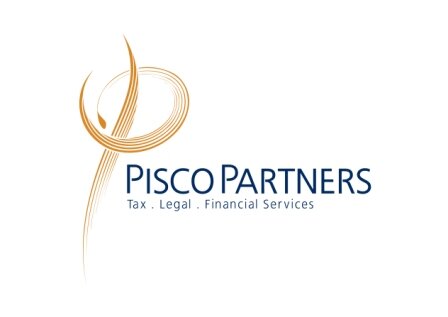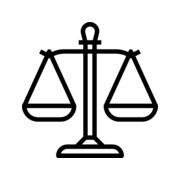Best Energy, Environment & ESG Lawyers in Malta
Share your needs with us, get contacted by law firms.
Free. Takes 2 min.
Or refine your search by selecting a city:
List of the best lawyers in Malta
About Energy, Environment & ESG Law in Malta
Energy, Environment, and ESG law in Malta is an evolving field that addresses the legal frameworks governing energy production and use, environmental protection, and sustainability practices in line with Environmental, Social and Governance (ESG) criteria. Malta’s position as an EU member state means its laws are often shaped by European Union directives and regulations. The country focuses on clean energy transitions, environmental conservation, emissions controls, and improved corporate governance in response to global sustainability challenges. Both businesses and individuals are impacted by these legal provisions, especially those engaging in industrial activities, property development, or public sector projects.
Why You May Need a Lawyer
There are various situations where individuals or businesses in Malta may require legal guidance in the areas of Energy, Environment, and ESG:
- Seeking permits for renewable energy installations such as solar or wind power.
- Engaging in property development where environmental impact assessments are mandatory.
- Ensuring compliance with waste management and pollution prevention regulations.
- Navigating carbon trading or mandatory emissions reporting requirements.
- Addressing disputes over environmental damage or natural resource allocation.
- Implementing ESG policies for local or international reporting standards.
- Managing administrative proceedings with regulatory agencies or government departments.
- Involvement in public procurement for infrastructure projects with environmental implications.
- Litigating or defending against environmental claims or breaches of compliance.
A qualified lawyer can help interpret the latest legislative updates, ensure regulatory compliance, avoid costly penalties, and protect your interests in negotiations or disputes.
Local Laws Overview
Malta’s legal framework for energy, environmental protection, and ESG matters incorporates both national laws and EU regulations. Some of the key statutes and regulatory bodies include:
- Energy Laws: Governed by the Sustainable Development Act, the Energy and Water Agency, and the Regulator for Energy and Water Services. Legislation covers renewable energy targets, grid access, energy efficiency, and incentives for green technologies.
- Environmental Laws: Regulated under the Environment Protection Act, Waste Management Regulations, and the EU's Natura 2000 framework. These set out requirements for pollution control, protected areas, waste handling, and permit systems.
- ESG Standards: As part of the European Green Deal and EU Sustainable Finance Disclosure Regulations, companies are increasingly required to report on environmental, social, and governance factors. Malta Financial Services Authority provides guidance for financial and listed entities.
- Planning and Development: The Planning Authority oversees development permits and environmental impact assessments, with strict rules in sensitive or protected zones.
Compliance with these laws is monitored by several regulators, and breaches can result in heavy fines or criminal liability. New regulations and sustainability requirements are periodically enacted as Malta adapts to EU objectives.
Frequently Asked Questions
What permits are required for installing solar panels or wind turbines in Malta?
Depending on project size and location, you may need development permits from the Planning Authority and authorization from the Regulator for Energy and Water Services. Environmental assessments can also be required for larger installations.
Are there incentives for renewable energy adoption in Malta?
Yes, Malta offers various grant schemes and feed-in tariffs for residential and commercial entities adopting renewable energy solutions, subject to eligibility and application procedures.
What is an Environmental Impact Assessment (EIA) and when is it required?
An EIA is a study assessing the potential effects of a proposed development on the environment. It is mandatory for certain projects or developments in sensitive areas as specified by the Planning Authority and the Environment and Resources Authority.
How are environmental breaches penalized in Malta?
Breaches of environmental laws can result in administrative fines, orders to remediate harm, or in some cases, criminal prosecution. Penalties depend on the severity and nature of the infraction.
What are the ESG requirements for Maltese companies?
Larger companies, especially those in regulated sectors or listed on financial markets, must disclose ESG-related information in line with EU regulations. This covering environmental impact, social responsibility, and internal governance standards.
Is waste management regulated for businesses?
Yes, all businesses in Malta are required to manage waste appropriately, segregate hazardous materials, and keep records. Certain industries face more stringent obligations under waste management law.
Can individuals report environmental violations?
Yes, individuals can report suspected violations to the Environment and Resources Authority or other regulatory bodies, which will investigate and take appropriate actions.
What is the role of the Malta Resources Authority?
The Malta Resources Authority oversees regulatory matters related to water, energy resources, and minerals, including licensing, tariffs, and compliance monitoring.
How does Malta support the circular economy?
Malta is promoting circular economy principles through incentives for recycling, reuse, and resource efficiency under national policy and EU directives, affecting design, manufacturing, and waste processes.
What are the next steps if a company is facing an environmental investigation?
It is advisable to seek legal counsel immediately to understand the allegations, review compliance records, cooperate with authorities, and prepare a defense or rectification plan as needed.
Additional Resources
There are several authorities and organizations that can assist with information or support related to Energy, Environment, and ESG in Malta:
- Environment and Resources Authority (ERA) - Environmental protection and regulatory guidance
- Planning Authority (PA) - Development permits and EIAs
- Regulator for Energy and Water Services (REWS) - Energy licensing and compliance
- Malta Financial Services Authority (MFSA) - ESG guidelines for financial and listed businesses
- Energy and Water Agency - Policy, research, and national strategies on energy
- Malta Resources Authority (MRA) - Resource management and permits
- Chamber of Commerce, Enterprise and Industry - ESG best practices for businesses
Next Steps
If you need legal assistance regarding Energy, Environment, or ESG matters in Malta:
- Gather all relevant documents including permits, correspondence from authorities, and details of the issue or project.
- Identify your objectives, whether it is compliance, dispute resolution, or guidance on best practices.
- Contact a qualified lawyer or law firm with expertise in Maltese energy, environmental, and ESG law to discuss your situation.
- Be prepared to provide a clear outline of your needs and timeline to facilitate prompt advice or action.
- Follow up regularly to ensure deadlines, filings, or permit requirements are met in accordance with local laws.
Early legal involvement can help you understand risks, seize available opportunities, and achieve compliance with Malta’s rapidly evolving Energy, Environment, and ESG legal landscape.
Lawzana helps you find the best lawyers and law firms in Malta through a curated and pre-screened list of qualified legal professionals. Our platform offers rankings and detailed profiles of attorneys and law firms, allowing you to compare based on practice areas, including Energy, Environment & ESG, experience, and client feedback.
Each profile includes a description of the firm's areas of practice, client reviews, team members and partners, year of establishment, spoken languages, office locations, contact information, social media presence, and any published articles or resources. Most firms on our platform speak English and are experienced in both local and international legal matters.
Get a quote from top-rated law firms in Malta — quickly, securely, and without unnecessary hassle.
Disclaimer:
The information provided on this page is for general informational purposes only and does not constitute legal advice. While we strive to ensure the accuracy and relevance of the content, legal information may change over time, and interpretations of the law can vary. You should always consult with a qualified legal professional for advice specific to your situation.
We disclaim all liability for actions taken or not taken based on the content of this page. If you believe any information is incorrect or outdated, please contact us, and we will review and update it where appropriate.
Browse energy, environment & esg law firms by service in Malta
Malta Attorneys in related practice areas.
Browse energy, environment & esg law firms by city in Malta
Refine your search by selecting a city.














